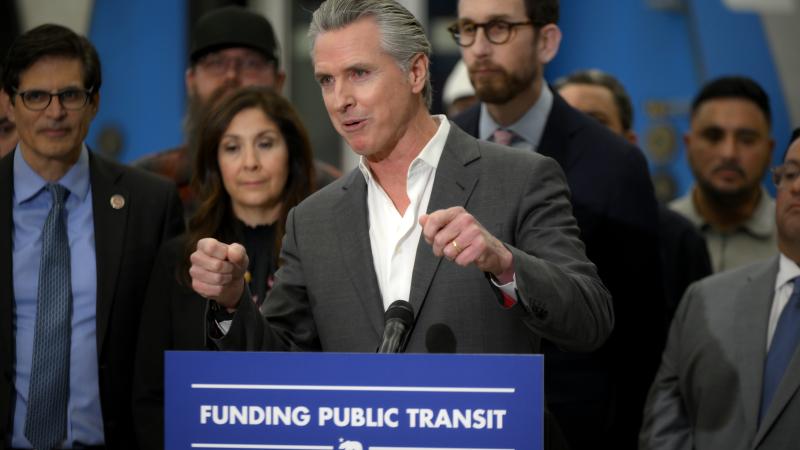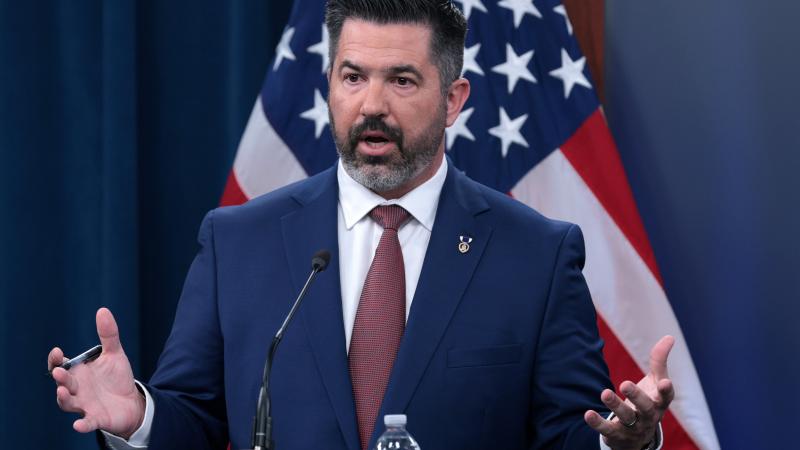Electric vehicle wrecks, fires draw safety concerns. Here are the latest facts
Tesla in particular has been under a regulatory microscope over widespread concerns that its technology features are connected to several motor accidents.
The National Highway Traffic Safety Administration (NHTSA) revealed this month that is investigating a fatal car crash in which a Tesla, which may have been using autopilot, drove under a tractor trailer attempting to make a turn.
Also this week, the Wall Street Journal released dashcam footage of a Tesla driving full speed into the back of a police vehicle that was stopped in the road. It collided with other police vehicles on the scene, and the officers are suing Tesla, claiming autopilot caused the crash.
Since 2021, Tesla has been under 11 different NHTSA investigations, all involving wrecks with first responder vehicles. Moreover, NHTSA data analyzed by The Washington Post suggests that Tesla’s autopilot features have been linked to 736 accidents since 2019, including 17 fatalities and 5 serious injuries. Although the autopilot feature was, according to the Post, "involved" in the accidents, NHTSA said a report of a crash involving driver-assistance does not itself imply that the technology was the cause.
It's not just car wrecks: it’s fires too. Numerous reports have surfaced of EVs spontaneously catching fire. A Tesla Model S burst into flames while charging in a home garage when the owners were sleeping in bed in 2021. More recently, an electric vehicle was the suspected culprit in a cargo ship fire carrying over 3,000 automobiles—nearly 500 of which were electric. The cargo operator declined to specify the manufacturer of the car that started the blaze.
It is impossible to generalize a single reason for why these cars have been catching on fire or potentially causing accidents, but here’s what we know:
EV car wrecks
Comparing electric cars’ safety to traditional cars’ safety is a bit nuanced. As the EPA points out, all cars—no matter what powers them—must meet the same safety requirements across the board. And when it comes to EVs, they may even be considered ‘safer’ in some regards.
The Insurance Institute for Highway Safety (IIHS) claims EVs have proven to be "as safe as or safer than gasoline- and diesel-powered cars," per its president, David Harkey. Adding more of these cars to the road "doesn’t require any compromises in terms of safety," it said following IIHS crash-test results.
However, one exception to this could be the car’s battery. These batteries are extremely heavy and can add hundreds or even thousands of pounds to the overall weight of a non-ICE car. While this would appear to be beneficial to the driver’s safety, other drivers on the road could be at risk.
National Transportation Safety Board chair Jennifer Homendy told CBS News that this indeed "presents significant challenges for safety."
"If you think about an impact in a crash with a lighter vehicle with a pedestrian or a cyclist or motorcyclists, it's going to have a much different [worse] outcome than we've seen in the past," she said, adding it can "absolutely" lead to an increase in fatalities during accidents.
EV batteries usually weigh around 1,100 lbs., but bigger cars like the new electric Hummer have batteries that appear to weigh around 3,000 lbs. These heavy batteries have also prompted concerns that older parking garage structures may not be able to hold up with extra-heavy EVs packed inside.
Regarding Tesla, while its basic autopilot features match those of many other new cars on the market today, they have two upgrade options they call "highly advanced" for its EVs called "Enhanced Autopilot" and "Full Self-Driving Capability," which allow for things like automatic lane changing, automatic stopping at red lights, stop signs, and more.
The company specifically warns potential buyers that these features "require active driver supervision and do not make the vehicle autonomous" and adds that "the future use of these features without supervision is dependent on achieving reliability far in excess of human drivers" and are "dependent upon regulatory approval."
Tesla boasts on its website that its Model 3 car earned "the lowest probability of injury of any vehicle ever tested by NHTSA" in 2018.
EVs catching on fire.
EV fires can often be caused by damage to the lithium-ion batteries, be it from a wreck, water damage, or some other unusual event. Although instances of EV fires tend to draw much media attention, there is evidence to suggest it isn’t as common as it may seem. Tesla is not the only car builder to have fire safety issues with their EV's. Forbes reported in 2021 that Ford, General Motors and Hyundai recalled tens of thousands of EV's due to fire-related concerns.
Researchers from Auto Insurance EZ compiled data from the NTSB and the Bureau of Transportation Statistics, and found that the proportion of cars sold to cars catching fire was the smallest among EVs. Overall, the results showed hybrid vehicles came in first for being most likely to catch fire, with 3474.5 fires per 100,000 sales. Next were gasoline cars at nearly 1,530 per 100,000, and electric vehicles only yielded 25 per 100,000.
Nonetheless, they do still occur, as previously mentioned in the cargo ship fire and garage incident. There are, though, many others, and the National Transportation and Safety Board (NTSB) has warned emergency responders to proceed with caution on automobiles.
A report published by the NTSB stated that "instructions in most manufacturers’ emergency response guides for fighting high-voltage lithium-ion battery fires lack necessary, vehicle-specific details on suppressing the fires." Unfortunately, the NTSB added that the "cut loops," designed to cut electric connections, are often damaged in accidents.
Follow Addison on Twitter.
















